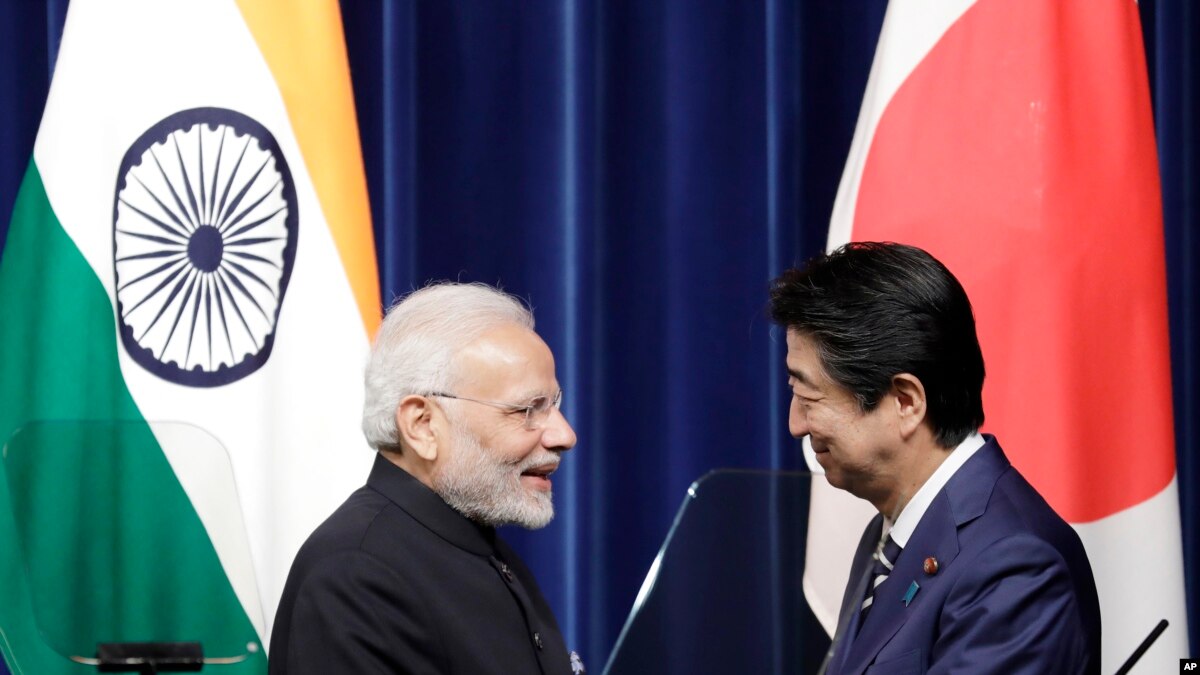
The leaders of Japan and India agreed Monday to step up their cooperation in defense, trade and a range or other areas amid China’s growing influence in the region.
Japanese Prime Minister Shinzo Abe and his Indian counterpart, Narendra Modi, said they are expanding ammunition sales and high-level defense talks and joint military exercises.
“Relations between Japan and India have the biggest potential in the world,” Abe told a joint news conference after holding talks with Modi. “A strong Japan benefits India and a strong India benefits Japan.”
Modi, through an interpreter, responded, “Without India-Japan cooperation, there will be no development in Asia into the next century.”
India is one of the countries that Japan has reached out to form defense partnerships, as Tokyo seeks to expand its military cooperation beyond its traditional alliance with the U.S. amid China’s increasingly assertive military presence in the region.
Japan in recent years has stepped up defense ties with Australia, New Zealand, the Philippines and other Asia-Pacific nations.
Abe and Modi welcomed joint exercises by their ground, sea and air forces and the start of negotiations toward an acquisition and cross-servicing agreement, or ACSA, which would enable sharing of supplies and ammunition between the two militaries as a way to “enhance the strategic depth of bilateral security and defense cooperation.”
They also signed a second-phase agreement for a Japanese super-express railway project in India.
Their meeting came immediately after a trip by Abe to Beijing, where he met with Chinese leaders, showcasing their improving relations. The Asian neighbors agreed to cooperate more in areas of common interest and concern.
Modi has called for regional unity against protectionism. He arrived Saturday and was invited to Abe’s vacation house near Mount Fuji on Sunday for private talks.
Concerns about China’s expanding influence on the regional economy and U.S. trade policy are also bringing Japan and India closer in their economic ties.
The two leaders reaffirmed their commitment to achieve a free and open Indo-Pacific.
Abe pledged low-interest loans worth 316 billion yen ($2.8 billion) for seven infrastructure projects in India. Half of the amount would be allocated to the railway project in western India using Japan’s “bullet train” technology, according to the signed documents.
Japan and India also discussed joint infrastructure projects in the region, including Sri Lanka.

No comments:
Post a Comment